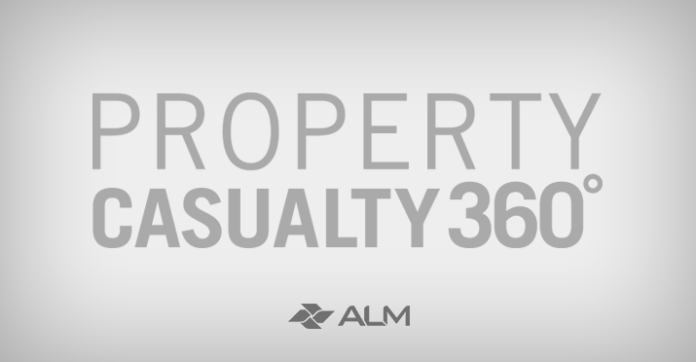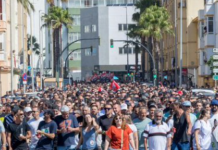Don’t drive distracted
As a general rule, if you need to do something that involves your phone, do it before you leave your driveway. This includes entering your destination into navigation, sending text messages or making phone calls. This will allow you to keep your phone from becoming a distraction as you drive. You should also refrain other distracting activities like applying makeup and eating, so you can keep your full focus on the road. If you listen to music, podcasts or audiobooks during the trip, you should keep the volume at a moderate level.
(Credit: Paul Vasarhelyi/Shutterstock.com)
Keep a safe distance
In general, you should aim to have a three-second gap between you and the vehicle in front of you. The easiest way to do this is to mentally note when the vehicle in front of you passes a landmark – like a road sign or building – and count how long it takes for you to pass the same object. If it’s less than three seconds, you need to slow down a bit to allow more room in case you need to react if they suddenly slow/stop, and to allow yourself more space to steer away and avoid a crash, if necessary.
(Credit: Andrew S./Adobe Stock)
Keep your vehicle in good repair
Even the best driving habits can’t counter a car that’s out of repair. To decrease the chance that your vehicle will encounter a potentially dangerous malfunction on your trip, you should stay up to date on things like oil changes and routinely check your tires and exterior vehicle lights – including your hazard lights.
(Credit: chartphoto/Adobe Stock)
Don’t depend on other drivers
This is where the lessons you learned in Drivers Ed about defensive driving come in handy. Be on the lookout for others driving recklessly so you can keep a safe distance and avoid being caught up in an accident because of another driver’s bad decisions.
(Credit: pololia/Adobe Stock)
Wear your seatbelt
Seatbelts should be a no-brainer, as they are one of the best ways to protect you and your passengers in the event of an accident, but some are still resistant to using them. Make wearing your seatbelt a habit, and encourage your friends and family to do the same.
(Credit: antoniodiaz/Shutterstock.com)
Plan ahead for road congestion
Holidays almost always mean heavier traffic as folks utilize the time off of work to get out of town. Plan ahead and allow yourself extra time to reach your destination in case you encounter traffic congestion, and do your best to avoid traveling through more populous areas during rush-hour times.
(Credit: bibiphoto/Shutterstock)
Labor Day weekend marks the unofficial end of summer, but it also holds a rather grim title: the second- worst weekend to be on the roads in the U.S.
According to the National Highway Traffic Safety Association (NHTSA), there were an average of 133 deaths per day during Labor Day weekend 2019, with thousands more injured in vehicle accidents. While dangers like reckless, speeding or intoxicated drivers are familiar risks, the NHTSA also advises anyone hitting the road take some lesser-thought-of dangers into account.
One of the biggest threats this time of year is heat. While the weather has begun to cool in certain areas of the U.S., many are still experiencing stifling temperatures that could spell trouble for anyone who finds themselves deadlocked in traffic for a long period of time or has car trouble that strands them on the side of the road. The interior of a car heats up very quickly without proper cooling, so it’s imperative you make sure your vehicle’s air conditioning is in proper working order prior to beginning your journey, especially if you’re travelling with those more vulnerable to heat stroke, like children and the elderly.
It’s also a good idea to prepare an emergency kit to keep in your vehicle in case of any unexpected trouble. The NHTSA recommends you include the following in your kit:
- Cell phone and charger
- First aid kit
- Flashlight
- Flares and a white flag
- Jumper cables
- Tire gauge
- Jack for changing a tire
- Work gloves and a change of clothes
- Basic repair tools and duct tape
- Water and paper towels
- Nonperishable food, drinking water and medicines
- Extra windshield washer fluid
- Maps
- Emergency blankets, towels and coats
In the slideshow above, we’ll look at six more tips to keep you safe as you hit the roads over Labor Day weekend, courtesy of Zutobi.
Related:
Escape the ordinary and discover the extraordinary! From bustling cities to serene landscapes, every journey begins with a single step—let us guide yours. Enjoy curated itineraries, hidden gems, and hassle-free bookings designed for explorers at heart. Whether it's a weekend getaway or a globe-trotting adventure, your Next unforgettable experience is just a click away.










